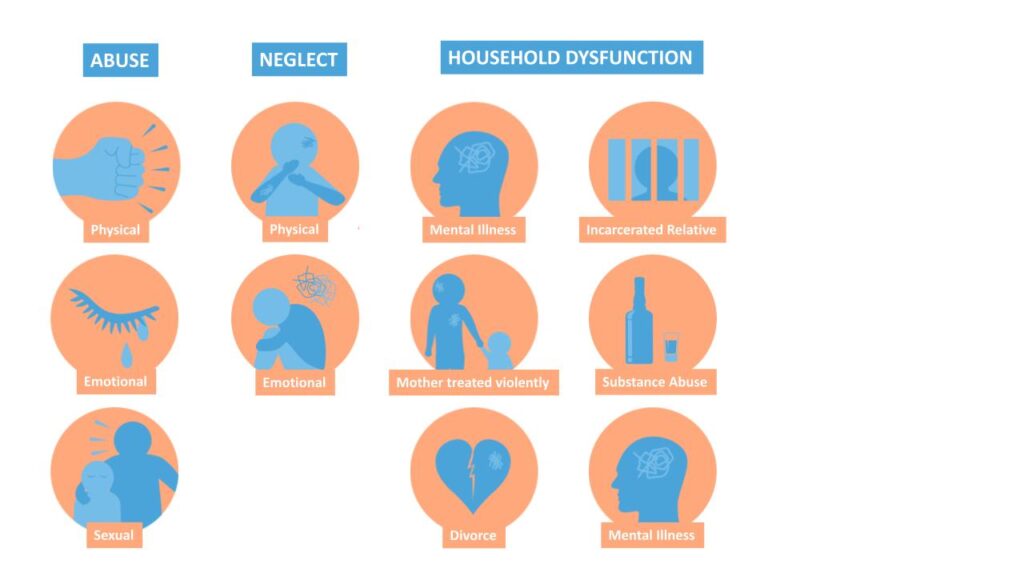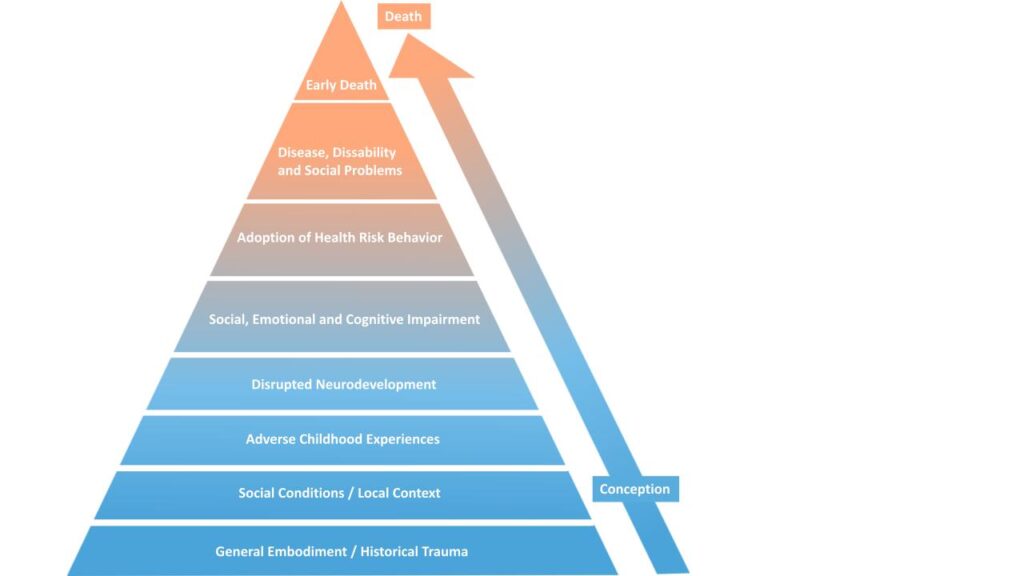The presence of ACEs experiences before the 18th birthday:
Abuse (emotional, physical, sexual)
Neglect (emotional, physical)
Household challenges (e.g.: parental separation or divorce, mental illness, substance abuse, living with someone with serious mental illness, losing a parent through divorce, death or abandonment).

Adapted from: Centers for Disease Control and Prevention
Credit: Robert Wood Johnson Foundation
The concept of Adverse Childhood Experiences (ACEs) encompasses a range of traumatic events, such as abuse and family dysfunction, which significantly influence a child’s development and health outcomes. Understanding ACEs is crucial as they have been identified as key factors contributing to long-term health disparities and societal challenges worldwide.
The areas covered by ACEs include various forms of abuse (physical, emotional, sexual), neglect, household dysfunction (such as domestic violence, substance abuse, mental illness, parental separation or divorce), and other traumatic experiences during childhood.
The impact of ACEs extends beyond childhood, affecting individuals throughout their lives, influencing their physical health, mental well-being, and social functioning. ACEs have been linked to increased risks of chronic diseases, mental health disorders, substance abuse, and difficulties in forming healthy relationships, highlighting the profound and lasting consequences of early life adversity.

Adapted from: https://hesonline.com/2019/01/14/adverse-childhood-experiences-ace-influence-wellbeing/
